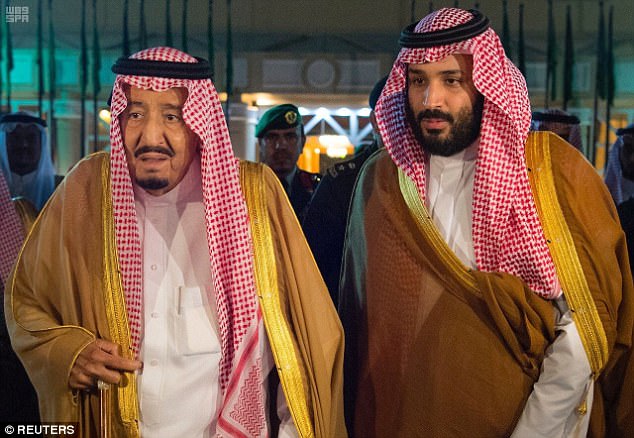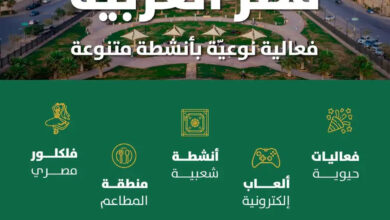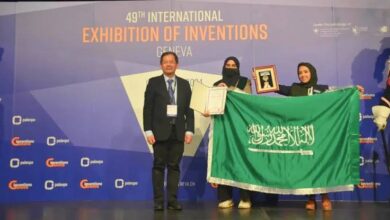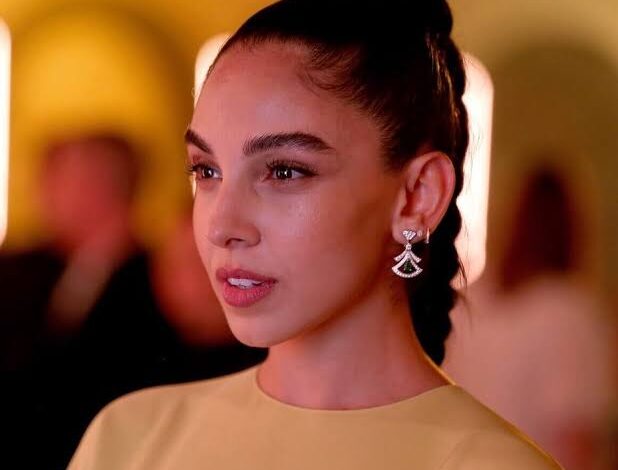
Ahmed Mustafa
The drama production of this series (the Highest Trending) was not large or historical, or a work that includes the heroes of the first row of Egyptian actresses and actors, as we see in other Egyptian dramas, especially in the month of Ramadan, due to the competition for high trending rates.
It began airing one night before the holy month of Ramadan, on the MBC Masr satellite network. The series attracted millions of viewers in Egypt and the Arab world, as it expresses its title (the Highest Trending), despite its late airtime at 03:30 am and simple production thereof, so they introduced Amr Adib’s “Big Time” program just before it also to get high viewership rates either.
The series sparked controversy and great sympathy with its heroines and heroes at the time of its airing, and on the platforms on which it was aired, including “Shahid”, for the simplicity and extreme realism in the implementation of the project of the producer, script-writer and director, perhaps the work could be called (feminist work) because it spoke or falls within women’s literature. Even if this scenario is made as a storybook for reading, it will gain best-selling rates.
So let’s get to know together and analyze this wonderful work, and the most important issues it discusses indirectly, away from the political clash, through the elements below.
The Highest Trending Drama Starring
The cast of “the Highest Trending” consists of a group of stars, namely: Salma Aboudeif (Shaimaa), Laila Ahmed Zaher, Ahmed Fahim, Islam Ibrahim, and Mohamed Mahmoud, and the work is written by Samar Taher, directed by Yasmine Ahmed Kamel, and produced by Abdullah Aboul Fotouh.
Thus we dedicate our sincere greetings to the actress who influenced us and made us cry with her extreme spontaneity, Salma Abu Deif / Shaimaa, a media graduate and former model, who started her artistic career seven years ago and became an important star in drama and cinema. Where she was offered an important cinematic movie before Ramadan on the story of the great Egyptian author Ihsan Abdel Quddus “A Nose and Three Eyes” and was among the heroines of the film, as she presented a character presented by the great actress Mervat Amin “Rihab” in the first version of the film in 1972, a character that is supposed to be bold and outgoing, opposite to the character (Shaimaa) in the series in question, and this puts us in front of a truly great actress project that forms like water in any vessel/role she is placed in.
Drama Main Theme
Many social media sites have been talking about the Egyptian TikTok Girls case in 2022. How these naive and inexperienced young girls, who wanted to improve their social life, were illegally trapped in some online dating networks. And then sexually exploited them by posting explicit clips of them, sexy dancing, or the like in exchange for money paid in local and foreign currencies.
This is what this girl, Salma Abu Deif / Shaimaa, was able to portray to us with such simplicity and spontaneity. So much so that we all sympathized with her and were against her imprisonment, feeling that she was marginalized, oppressed, down on her luck, and misunderstood all the time.
In the final scene, she was able to hurt us emotionally, when the judge asks her to add any statement from her side at the trial, and she said: “O Pasha, I didn’t know that I would be famous one day through TikTok (I swear to Allah – that oath is used by most young people in Egypt), my dream was only to help my parents because they are needy – and only to paint the walls of our apartment.”
This statement also implicitly accuses all social stakeholders of negligence, lack of justice, and social equity for the poor, as well as for middle classes that has been eroded by the rampant free market mechanisms and economic liberalism in Egyptian society.
On the other hand, it reminds us of the movie and novel of our great international author/novelist, Nobel laureate in literature, Mr. Naguib Mahfouz “Beginning and End”, and its main protagonist “Nafissa”, who was ably portrayed in the 1950s by one of the great Egyptian actresses, “Mrs. Sanaa Gamil” – As Nafissa was a broken girl at that time, due to time, poverty and lack of education and knowledge, who was deceived by the person she loved, and left her after he got her, and left her to marry another.
This prompted her to meet other men who were worse than the deceitful person she loved, perhaps out of love and marriage. However, they exploited her sexually, for small amounts of money, which she used to help her needy family and her siblings. One of them was her younger brother who attended police school at that time (portrayed by the Megastar Omar Sharif).
However, when he graduated from police school and became a police officer, “Nafissa” was caught in a brothel, he was the first to smack her and urged her to commit suicide by throwing herself into the Nile to get rid of her shame. As he forgot that she was the one who was unfortunately a candle burning for him throughout his years of study, so he dealt with her in the most despicable way.
The story of Shaimaa, played by the rising artist: “Salma Abu Deif”; this simple and innocent Egyptian and Arab face that we sympathized with, in the “Highest Trending” series, which was produced in only (16) episodes; exactly similar to the story of “Nafissa / Mrs. Sanaa Jameel” in the movie “Beginning and End”, but in a modern and current concept that corresponds to 2024.
As she has entered the complexities of social media and phone applications that are developing rapidly daily. Especially with the rise of “Artificial Intelligence”, which is moving at a very speedy pace and cannot be followed.
This will put both “Salma Abu Deif” and “Leila Ahmed Zaher,” the heroines of the series, a very big responsibility, because they have surpassed many of the first-class stars in the Arab world through this wonderful work, easy and enjoyable, in their future choices. Because it is always very difficult to stay on top for two reasons, good scenarios like this one, and proper production.
The Series avoided the Permanent Crisis in the Ramadan Arab Drama Race
In a professional interview with the distinguished Egyptian director, Mrs. Kamla Abu Zekry, on a recent program broadcast on one of the Egyptian satellite channels, when asked about the Ramadan series race and whether she will participate in it or not? She replied sarcastically:
“As directors, we always have two important obstacles, production, as if the producer forgets that there are 11 months before the holy month Ramadan to prepare well for the drama project, having the proper casting for the roles.
In addition, good writing/scenarios, because sometimes we receive written episodes late and within the month of Ramadan itself, and we execute them without proper planning. So we may continue filming for about 72 hours continuously to reach an acceptable vision that the viewer can accept.
This is exhausting for us as directors. So when viewers find some shortage of the filmed scenes on our part, it’s for the above reasons. So this year, I’m out of the Ramadan race for TV dramas.”
However, a work such as “The Highest Trending,” the subject of this article, was almost complete before Ramadan and may have been intended to be aired on one of the platforms, we believe, and did not require a large production as it relied on stars who are not first-class stars, but what they performed surpassed the first-class stars.
And because the majority of the heroes are in the young age category and speak in their own-way of telling, dialog, and terms while maintaining this thin line of not using offensive words, this was a great success for the script-writer.
The Story of the Series Addresses Human Trafficking
In 2021, Dr. Nihal Fahmy, a well-known Egyptian Sociologue, published her book “Human Trafficking in the Arab Region,” and the book dealt with how prey, whether girls or boys, are hunted for these networks, which are managed by global entities and networks with economic and political influence around the world. Where this category of businessman represented by (Shaimaa’s husband in the series) exploited her and took advantage of her page’s followers on TikTok in the millions; The accounts of these networks are part of a complex network managed by professionals parallel to the conventional banking system, or using encrypted currencies and the like. So that it is not possible or difficult to reveal its paths, and it falls within one of the basics of the shadow economy with the trade in “weapons, drugs, terrorism, and mercenaries.”
At that time, Dr. Nihal Fahmy confirmed that the Arab and Islamic region is still the best region in the world exposed to this phenomenon. But this does not negate our great social, economic and media responsibility to protect our youth from this phenomenon in our region. This is because with poverty, unemployment, lack of economic and social empowerment, marginalization, and the low level of awareness of large groups in our societies, such as Egypt, for example, which has a huge population strength, compared to the rest of the Arab countries, the rates of exposure of our young men and women to these illegal phenomena can increase.
In an investigative report published by the disguised economic magazine Forbes in February 2020 on “the size of the human trafficking trade in the world,” it becomes clear to us that the number is very huge. At that time, it reached (150 billion US dollars). It was divided between (first) sexual exploitation, and (second) forced labor under threat, or through the authorities, or prisons, or in colonies, or the like, as happens with our brothers in Palestine and up to this day by the authorities of the Zionist entity.
Another issue highlighted in the series is the use of a smartphone and respect for privacy and personal freedoms
As we were following the interventions of the Egyptian lawyer, feminist activist, and parliamentarian (Mrs. Nihad Abu Al-Qumsan) regarding the video of a girl dancing as a compliment to her friend at the latter’s wedding, the problem was not here. Rather, one of the attendees at this wedding filmed this girl dancing, violating her personal freedom, and then published it without this girl’s permission on TikTok and other social media, to ride the trend on his or her page.
Mrs. Abu Al-Qumsan commented: This is a legally criminal act, and it violates the private freedoms of individuals, because publishing videos about people or individuals, without their prior permission, is a legally criminal act, even if the purpose is not legally criminal. Unfortunately, this is what many people do these days, and we become tempted to photograph without saving someone in a problem in front of us, in order to increase viewership and ride the highest trend.
The other most important thing is that the smartphone, with its high photographic and editing capabilities, has become a threat to others. People, whether public figures or other ordinary people, are often photographed in inappropriate situations, or on the beach in swimsuits, either to threaten, pressure or blackmail them – as this incident reminds us of the “paparazzi journalists” who caused the death of the “Princess/ Diana, Princess of Wales, in August 1997, due to her presence with (Dodi Al-Fayed) in his car in Paris, to achieve higher following rates and newspaper sales.
This is what the series indirectly highlighted by Shaima’s presence at one of the weddings, and her dancing with other girls, and accordingly, a competitor of hers who hates her, such as a TikToker, filmed her as if she was dancing alone, then publish the video, which damaged her reputation.
Shaima’s problem was also with her family’s lack of understanding of these applications, trending, and how these trends bring her money, advertisers, and exihibitors. She was forced to lie to her family, because she felt that she was doing something that did not fit with the simple and conservative surrounding family’s culture.
Shaima was always backlashing herself, and enduring humiliation, threats, and blackmail from her brother-in-low (Islam), and her younger sister (Laila Ahmed Zaher), the latter of whom she felt deadly jealous of, because Shaimaa became much more famous than her on TikTok for her spontaneity. She thought that Shaima also took away the person she loved, which caused the younger sister to always discredit her sister (Shaima) by lying to her family, especially her parents.
Knowledge and Awareness Reduce the Spread of the Human Trafficking
This series makes us have compassion for the Egyptian leader Gamal Abdel Nasser, when he mentioned in one of his speeches that he supports women’s education, so that they can arm themselves with awareness and knowledge. In order to be able to work to support herself. In order not to stray from the right path, his expression was extremely sophisticated in the face of calls for closure and for women to return home completely, and he supported women’s work and the independence of their financial assets, so that they would have a social role greater than that of mothers only.
Presenting the series in itself as a purely Egyptian drama, and one of the great soft power tools that Egypt enjoys in the Arab and Islamic world, is a great warning directed to parents and partners in society, for example, schools, universities, civil society, the media, and the government, to urge them to try to understand their children, and to listen to them and to Their immediate problems, and giving priority to the principle of frankness between parents and children.
While trying to persuade parents not to oppress their children, listen to them, and try to follow the changes that are occurring internally and externally, especially on social media sites and phone applications. Because digital globalization has become very ferocious, and it is one of the tools of some (Western) agendas through which they are trying to change concepts about the natural family.
As well as distorting the basic, innate social roles with which God created people, especially in our Arab and Islamic region, under the concepts of personal freedoms, individualism, and human rights – concepts that seem bright, but will destroy the West in the near future. Because it is a departure from universal nature, because there is no such thing as “absolute freedom,” as if we live on isolated islands within society.
It is imperative to create introductory curricula taught from the basic stages in our region that discuss these issues such as digitization, and what is the appropriate age to use multi-tasking smartphones, and social networking sites. International telecommunications and application companies participate in developing the curricula. Conversely, perhaps trying to use the phone at a younger age in competitions that raise intelligence levels and skills in sciences such as mathematics, engineering, and physics.
With the global energy crisis, and thus the power outage crisis, our attention was drawn to physics videos on TikTok, teaching people, in the simplest ways, how to obtain energy-sustainable lighting from discarded materials found in our homes.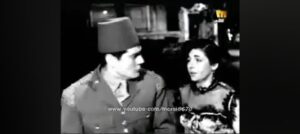
An important role for governments, academies, think tanks, and businessmen is to urge these large platforms such as TikTok, Meta, and Google/YouTube to establish academic partnerships as local academies in the field of future media, useful applications, and media ethics that facilitate… Human lives (as a form of Corporate Social Responsibility). As well as trying to hold joint media and scientific projects. As well as competitions that serve our societies in the Arab and Islamic world in the south, and raise the quality of our media to a level similar to its counterparts in advanced media countries, east and west.
To Conclude, drama is an interesting thing and a weapon with which to shed light on negative social phenomena that can be treated, and Egyptian drama is still the strongest in the Arab world if the topic is chosen well and written in a thoughtful and realistic manner. With the translation and marketing of these distinctive works, such as this series, into several languages (English – Turkish – Persian – Russian), they can be marketed to several countries and have a large economic return in hard currencies, which we need to support Egyptian art in general and produce other stronger and larger works.

